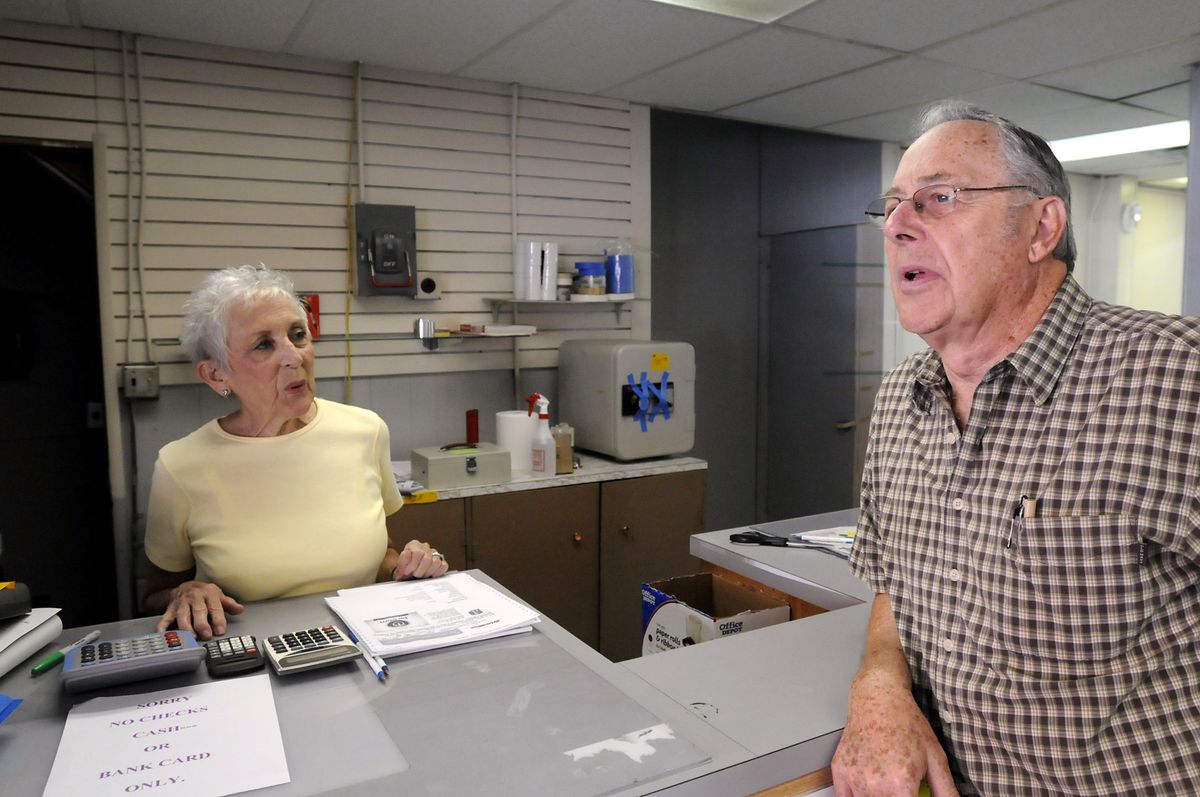Washington Photo ends 52-year run
Rise of digital doomed venerable business

Bill and Barbara Votava operated Washington Photo for more than 50 years. From a single shop they took over in 1956, they rode the boom in color processing of the ’60s to become one of the region’s busiest film handlers.
But another big change in the industry over the past decade, the advent of digital photography, took a large toll on their business. Two weeks ago the Votavas closed their downtown Spokane office.
As digital photography far surpassed film processing, the Votavas said they weren’t ready to manage computers and kiosks and USB card readers.
“We didn’t want to invest in the equipment and infrastructure” needed to keep up with digital photography, said Bill Votava. “It was time to retire.”
They got into the business in 1956, taking over Spokane Film Inc., started in 1947 by its original owner, George Bell.
“He could see color was coming into the business and he (Bell) was frightened to death and sold to us,” said Bill Votava.
By the 1980s the Votavas had expanded. They had operations not just in Spokane, but Boise; Great Falls, Mont.; the Tri-Cities; and Seattle. They had dozens of employees and were processing thousands of photos each week.
In the 1980s came the next change that altered the processing industry, the arrival of one-hour processing.
The Votavas were operating buildings of at least 2,000 square feet. Along came one-hour kiosks that had about 10 cubic feet of space. The difference in operating costs couldn’t be endured for long.
The Votavas ended up downsizing and focused solely on Spokane customers.
Competing against the one-hour shops, Washington Photo survived by processing prints for professionals and regional companies looking for quality work and good service.
“We were in processing and we knew how to handle large volumes of film and large volumes of prints and made a good profit,” said Bill Votava.
Washington Photo stayed out of the camera-selling business. “We sold a few cameras, but that wasn’t what we wanted to do,” he added.
When digital photography came along in the late l990s, film processing became a niche industry.
By 2006 Washington Photo (which renamed itself Washington Photo and Digital) had shrunk to fewer than eight employees.
Nationally the same trend was taking place. In 2006, 204 million rolls of film were sold, a quarter of the 800 million sold at the peak in 1999.
Washington Photo stuck to what it knew best. “We actually didn’t make a profit last year and we knew that couldn’t continue,” said Votava. He and his wife have family members living in Spokane, but none of them offered to run the business.
“It wasn’t profitable enough to interest them,” he added.
The business, at 101 S. Division St., is owned by the Votavas. They’re considering selling the building, which has about 3,000 square feet of office space.
The Votavas don’t plan to do anything now but enjoy retirement. “We live in a gated community here and have lots of friends. And half the year we live in a gated community in Panama. And we enjoy going there and being with friends, too,” said Votava.